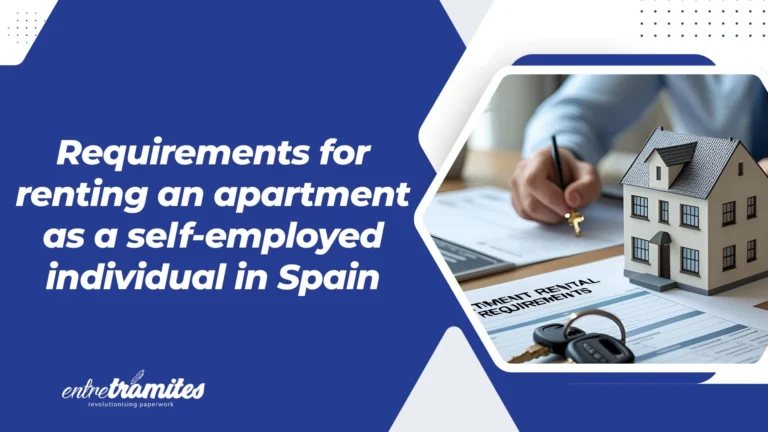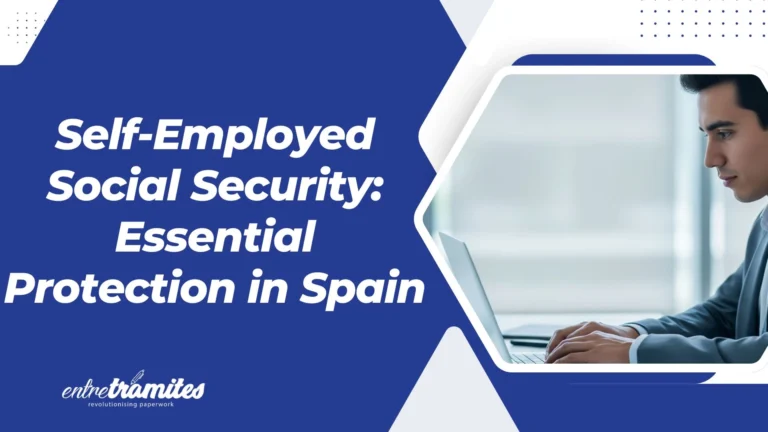Being a freelancer in Spain offers great flexibility, but it can present unique challenges when it’s time to find a home. Unlike salaried employees, freelancers often face specific rental requirements from landlords and real estate agencies. In 2025, being well-prepared and demonstrating solid financial stability is crucial to secure your ideal apartment.
Proving Your Financial Solvency: The Key to Renting
The primary concern for landlords is a tenant’s ability to pay rent consistently and on time. As a freelancer, you must present a strong case for your financial stability. Landlords will typically request a set of documents to verify your income and payment capacity.
Essential Documents for Freelancers
- Income Tax Returns (IRPF): Your latest tax returns are the most effective way to prove your annual income and fiscal standing. Landlords often request the last two years of returns to see a stable track record. You can download these from the official website of the Spanish Tax Agency (Agencia Tributaria).
- Bank Statements: You may be asked for bank statements from the last six to twelve months. This allows the landlord to assess the regularity of your income and your overall financial management.
- Client Contracts and Invoices: Presenting long-term service contracts or a history of issued invoices is tangible proof of your income. For instance, a graphic designer with ongoing contracts with multiple companies can use these agreements to strengthen their application.
- Business Registration Certificate (Modelo 036 or 037): This document proves your official registration as a freelancer in the census of entrepreneurs and professionals, confirming that your activity is legal and registered.
- Social Security Payments: Providing proof that you are up-to-date with your Social Security contributions (recibos de autónomos) reinforces your image of financial responsibility.
Additional Guarantees: A Backup Plan
In some cases, especially if you are a new freelancer or your declared income does not meet the landlord’s solvency requirements (many landlords prefer that rent not exceed 30-35% of your net income), you may be asked for extra guarantees.
- Personal Guarantor (Avalista): A guarantor, usually a family member, agrees to be jointly responsible for the rent payment if you fail to pay. The guarantor must also be able to demonstrate their financial solvency.
- Additional Deposit: In addition to the standard one-month security deposit required by law, a landlord might ask for an extra deposit of up to two months’ rent. This extra deposit serves as a guarantee and is returned at the end of the contract if there is no damage to the property and all obligations have been met.
Other Factors That Strengthen Your Application
- A Solid Freelance History: A long and successful track record is a major plus. A freelancer who has been in business for three years with a growing client base is often seen as a more reliable tenant than a new freelancer.
- Positive References: Positive references from previous landlords are invaluable. They confirm your history of timely payments and proper care of the property.
Rent Payment Protection and Government Aid (2025)
The Spanish government has been implementing measures to support both landlords and tenants.
- Rent Default Insurance: Many landlords now require tenants to pass a solvency test for a rent default insurance policy. This insurance protects the landlord from non-payment. While the landlord usually pays for the policy, you must meet the insurer’s income requirements to be approved.
- Public Rental Guarantees: In 2025, a new public guarantee scheme, managed by regional governments, provides a safety net for landlords in case of tenant non-payment. This initiative aims to encourage more rentals.
- Rental Assistance for Freelancers: Both the national and regional governments offer various rental aid programs. These are often means-tested and designed to help individuals with limited income.
- The Youth Rental Voucher (Bono Alquiler Joven) offers €250/month for up to two years to people under 35 who meet income requirements.
- The 2022-2025 State Housing Plan includes aid for individuals with limited income (up to 3 times the IPREM), covering up to 50% of the monthly rent.
Frequently Asked Questions (FAQs)
What percentage of my income should the rent be? Most landlords and insurance companies prefer that your monthly rent not exceed 30-35% of your net monthly income.
Is it possible to rent if I am a new freelancer? It is more challenging, but not impossible. You will need to compensate for your lack of history with other guarantees, such as a guarantor with a stable income or a larger security deposit. A solid business plan or initial client contracts can also help.
Where can I find specific rental assistance for my region? Each of Spain’s Autonomous Communities manages its own housing aid programs. We recommend checking the official website of the Housing (Vivienda) or Public Works (Fomento) Department of your specific region.
While being a freelancer can present more obstacles when looking for a home in Spain, it is not an insurmountable challenge if you are well-prepared. By having all your financial documentation in order and demonstrating your stability, you can prove you are a reliable tenant. In 2025, with the rise of rent payment insurance, public guarantees, and specific rental aid, the scenario is more favourable than ever for self-employed professionals.
You can also contact us directly through this contact Form for us to call you, or if you prefer, you can schedule a free consultation or write to us on WhatsApp. We’re here to make the process easier for you!.




